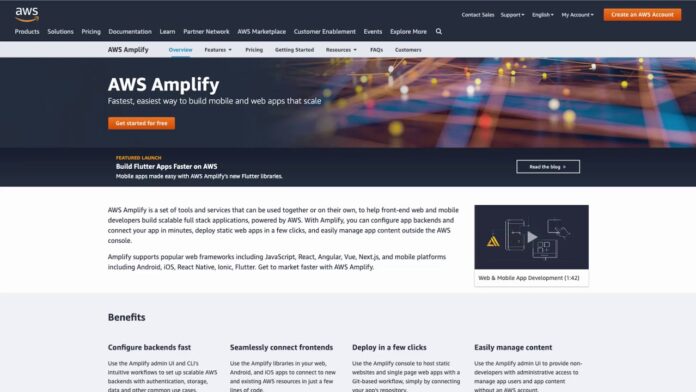The world of cloud computing has exploded in recent years, with Amazon Web Services (AWS) emerging as a dominant player. Among its vast array of services, Virtual Private Servers (VPS) stand out as a powerful and versatile solution for businesses of all sizes. This article will delve into the intricacies of AWS VPS, exploring its architecture, advantages, potential drawbacks, and how it can empower your business.
AWS vs. VPS: Choosing the Right Infrastructure for Your Needs
When it comes to choosing the right infrastructure for your business, there are many factors to consider. Two popular options are AWS and VPS hosting. While both offer virtualized computing environments, there are significant differences between the two. Let’s take a closer look at what sets AWS and VPS apart.
Understanding AWS and VPS: A Comprehensive Comparison
Definition and Purpose
AWS is a comprehensive cloud computing platform that offers a wide range of services, including storage, networking, databases, and more. One of its core offerings is Elastic Compute Cloud (EC2) instances, which provide on-demand virtualized servers or VPS.
On the other hand, VPS hosting involves renting a virtualized server from a hosting provider. This server simulates a dedicated physical server, with its own operating system and resources. It offers more control and flexibility than shared hosting, but not as much as AWS.
Scalability and Flexibility
One of the key advantages of AWS is its scalability. With AWS, you can easily scale up or down your resources based on demand, without any disruption to your operations. This makes it ideal for businesses that experience fluctuating traffic or unpredictable growth.
In comparison, VPS hosting may be limited in scalability, depending on the provider. Some providers may offer scalable VPS plans, while others have fixed resource allocations. This means that if your website or application experiences a sudden surge in traffic, you may need to upgrade your plan to accommodate it.
Performance and Cost
AWS is known for its high-performance infrastructure, with multiple availability zones and data centers around the world. This allows for faster data transfer and reduced latency, resulting in a seamless user experience. However, this level of performance comes at a cost, and AWS can be expensive for small businesses with limited budgets.
VPS hosting, on the other hand, can offer a balance between performance and cost. It is generally more affordable than AWS and still provides dedicated resources, making it a suitable option for growing businesses.
Leveraging AWS for Scalable and Flexible Cloud Computing
As mentioned earlier, AWS is unmatched when it comes to scalability and flexibility. Its vast range of services and tools allow businesses to customize their cloud infrastructure to suit their specific needs. Let’s take a closer look at how AWS can empower your business.
Elastic Load Balancing (ELB)
One of the challenges of managing web applications is handling unpredictable spikes in traffic. With ELB, AWS automatically distributes incoming traffic across multiple EC2 instances, improving performance, and reducing the risk of downtime. As your traffic grows, you can easily add more instances to your load balancer, ensuring a seamless user experience.
Auto Scaling
Auto Scaling is another powerful feature of AWS that allows you to automatically adjust your resources based on demand. This eliminates the need to constantly monitor and manually manage your server capacity. You can set up Auto Scaling policies to add or remove EC2 instances based on CPU utilization, network activity, or other metrics.
Managed Databases
AWS offers a variety of managed database options, such as Amazon Relational Database Service (RDS) and Amazon Aurora. These services eliminate the need for manual database management, allowing businesses to focus on their core operations. They also offer advanced features like automatic backups, data encryption, and high availability.
Virtual Private Cloud (VPC)
AWS VPC allows users to create a private network within the AWS cloud. This offers greater control and security, as you can define your own IP address range, subnets, route tables, and network gateways. You can also connect your VPC to your on-premises network using a virtual private network (VPN) or AWS Direct Connect.
Exploring VPS Hosting Options: Performance and Cost Considerations

While AWS offers unparalleled scalability and flexibility, VPS hosting has its advantages when it comes to performance and cost. Let’s take a closer look at the different VPS hosting options available and how they stack up against each other.
Shared VPS Hosting
Shared VPS hosting is the most basic and affordable option for businesses. With shared hosting, multiple users share resources on a single server, making it the least powerful option. This can result in slower performance and potential security risks. However, for small websites or blogs with low traffic, shared hosting can be a suitable option.
Virtual Private Servers (VPS)
As mentioned earlier, VPS hosting simulates a dedicated physical server, offering more control and dedicated resources. This makes it ideal for businesses with moderate traffic and resource-intensive applications. VPS hosting plans can vary in terms of scalability, management, and pricing, so it’s essential to research and compare different providers before choosing one.
Cloud VPS Hosting
Cloud VPS hosting is a newer form of VPS hosting that utilizes cloud infrastructure for improved performance and scalability. Unlike traditional VPS hosting, where resources are limited by the physical server’s hardware, cloud VPS hosting allows for easy scaling and resource allocation. This is because cloud servers operate on a pay-as-you-go model, meaning you only pay for the resources you use.
Managed VPS Hosting
Managed VPS hosting is a premium option where the hosting provider handles all server management and maintenance tasks. This includes software updates, security patches, backups, and more. Managed VPS is ideal for businesses that do not have the technical expertise or resources to manage their servers.
Migrating from VPS to AWS: A Step-by-Step Guide

With its numerous benefits, many businesses may consider migrating from VPS to AWS. However, this can be a daunting task, especially for those with little experience in cloud computing. Here are some steps to help you successfully migrate from VPS to AWS.
- Evaluate Your Needs: Before making the move, it’s crucial to assess your current hosting needs and what you hope to achieve with AWS. This will help you determine which AWS services and features you need.
- Familiarize Yourself with AWS: Take some time to understand the basics of AWS, such as its pricing model, terminology, and key services. This will make the migration process smoother.
- Choose Your EC2 Instance Type: AWS offers a wide range of EC2 instance types, each tailored to specific use cases. Research and choose the instance type that best suits your needs in terms of performance, cost, and resources.
- Set Up Your VPC: As mentioned earlier, VPC allows you to create a private network within the AWS cloud. You can set up a VPC using the AWS Management Console or Command Line Interface (CLI).
- Launch Your EC2 Instance: Once your VPC is set up, you can launch your EC2 instance by selecting the appropriate AMI and instance type. You can also configure security groups, storage options, and other settings at this stage.
- Migrate Your Data: Next, it’s time to transfer your data from your VPS to your new AWS instance. You can do this using tools like rsync, scp, or sftp.
- Test and Optimize: Once your data is transferred, it’s essential to test your new AWS environment for performance and functionality. You can also optimize your setup by adjusting resources, setting up monitoring, and implementing best practices.
Benefits of Using AWS for Amazon Businesses
As the cloud computing market leader, AWS has a significant presence in the e-commerce world. Many Amazon businesses rely on AWS for their infrastructure, and there are several benefits to this choice. Let’s take a look at how AWS can benefit Amazon businesses.
Seamless Integration
As an Amazon business, you are already familiar with the platform’s tools and services. This makes it a seamless transition to use AWS, as the two platforms can easily integrate and complement each other. This integration allows for easier management and improved efficiency.
Reliable Infrastructure
Amazon businesses experience high volumes of traffic, especially during holiday seasons or sales events. With AWS’s vast infrastructure and multiple availability zones, you can ensure reliable performance and minimal downtime. This translates to a better user experience and increased customer satisfaction.
Scalability for Growth
AWS offers unmatched scalability, making it ideal for growing Amazon businesses. As your business expands, you can quickly add more resources to meet demand, without any disruption to your operations. This helps keep your website or application running smoothly, even during periods of high traffic.
Cost Optimization Strategies for AWS and VPS
While both AWS and VPS have their advantages, they can also be costly if not managed properly. Here are some cost optimization strategies to help you get the most out of your cloud infrastructure.
Right-Sizing Your Resources
When using AWS, it’s crucial to regularly review and adjust your resource allocation. This means scaling down resources that are not used frequently or using reserved instances for long-term usage. For VPS, choose a plan that offers the right balance of resources for your current needs, and upgrade when necessary.
Utilizing Cloud Storage
AWS offers a variety of storage options, including Amazon S3 and Amazon Glacier. These services are cost-effective for storing large amounts of data, as you only pay for what you use. This can be more affordable than using traditional VPS hosting for storage.
Implementing Auto Scaling Policies
As mentioned earlier, Auto Scaling allows you to automatically adjust your resources based on demand. This means you only pay for the resources you need, making it a cost-effective solution for businesses with fluctuating traffic.
Security and Reliability: Comparing AWS and VPS
Security and reliability are critical factors when choosing a cloud infrastructure provider. Both AWS and VPS offer robust security measures, but there are some differences between the two.
Physical Security
AWS has a large global network of data centers, each with strict physical security measures in place. This includes biometric access controls, video surveillance, and 24/7 monitoring. While VPS providers also have security measures in place, they may not match the level of protection offered by AWS.
Network Security
Both AWS and VPS provide firewall protection and network segmentation to prevent unauthorized access. However, AWS’s robust network infrastructure and multiple availability zones provide an additional layer of security against potential threats.
Data Protection
AWS offers a range of data encryption options, from server-side to client-side encryption. This ensures that your data remains protected at all times. In comparison, VPS hosting relies on the provider’s security measures, which may not offer the same level of protection as AWS.
Best Practices for Managing AWS and VPS Environments
Managing AWS and VPS environments can be challenging, especially for those new to cloud computing. Here are some best practices to help you effectively manage and optimize your infrastructure.
Regular Monitoring
Monitoring is essential for identifying performance issues and potential security threats. Use tools like Amazon CloudWatch or New Relic to track your resources’ utilization and set up alerts for any abnormalities.
Automate Where Possible
AWS offers a wide range of automation tools, such as AWS CloudFormation and AWS OpsWorks. These allow you to automatically deploy, manage, and update your resources, reducing the need for manual tasks and potential errors.
Implement Security Measures
As mentioned earlier, both AWS and VPS offer security features, but it’s still essential to take additional precautions. This includes using strong passwords, implementing multi-factor authentication, and regularly reviewing and updating your security policies.
The Future of Cloud Infrastructure: AWS, VPS, and Beyond
The world of cloud computing continues to evolve, with new technologies and providers emerging. While AWS remains the market leader, other players like Microsoft Azure and Google Cloud Platform are gaining traction. Additionally, serverless architecture, where businesses no longer need to manage servers at all, is becoming increasingly popular.
With this in mind, it’s crucial for businesses to keep up with the latest trends and make informed decisions when it comes to their cloud infrastructure. Whether it’s AWS, VPS, or another solution, choosing the right provider can have a significant impact on your business’s success.
Conclusion
In conclusion, AWS and VPS offer powerful solutions for businesses looking to leverage the benefits of cloud computing. While AWS may be more suitable for large-scale enterprises, VPS hosting can be an affordable option for smaller businesses. Regardless of which option you choose, proper management and optimization are key to getting the most out of your cloud infrastructure. So take the time to evaluate your needs, research different providers, and implement best practices to ensure a seamless and efficient cloud computing experience.









